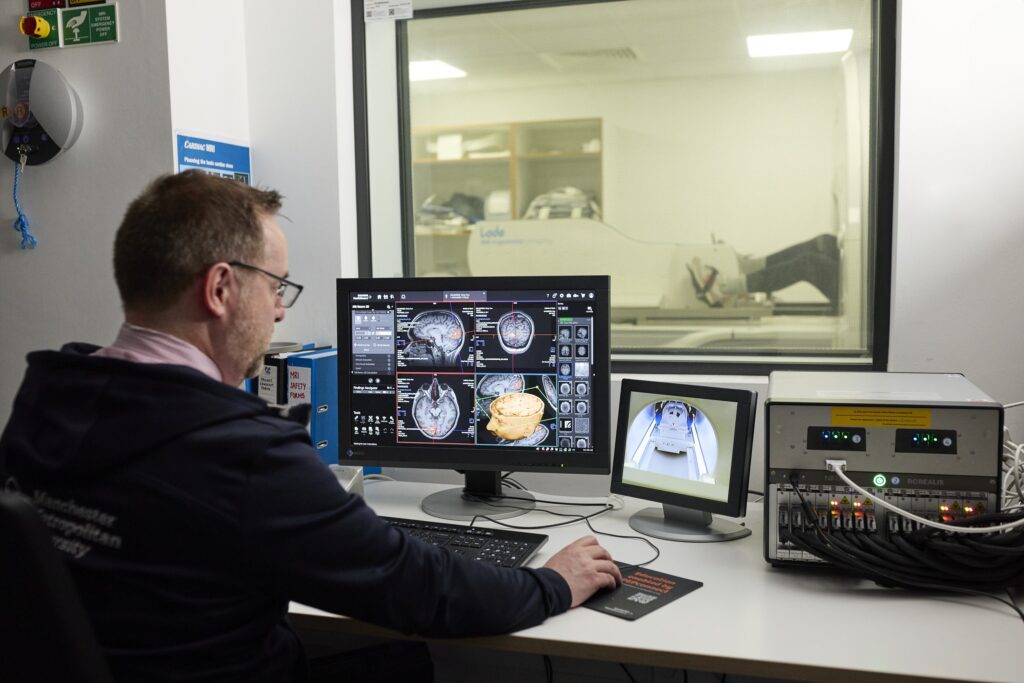The brain never rests, controlling every breath, heartbeat, and movement, and shaping how we experience the world. Even a minor injury can expose the vast complexity of its functions. So much remains unknown.
As lifespans grow longer and neurological conditions more prevalent, the demand for deeper understanding of the nervous system is now urgent, calling for education that evolves alongside scientific discoveries. In Manchester, a university recently named Modern University of the Year 2026 by the Good University Guide, is rising to that challenge.
Manchester Metropolitan University, ranked 33rd in the Guardian University Guide and 15th in the UK for the power of its health and biomedical research (REF 2021), is preparing the next generation of neuroscience researchers and professionals through its MSc Neuroscience degree.
This one-year, full-time programme dives deep into the structure and function of the nervous system while equipping students with the skills to investigate neurological injuries and disorders. It’s designed for those who want to make a tangible impact through scientific discovery, combining rigorous research training with innovative approaches to understanding the brain.
The programme fuses physiology, healthy ageing, and the neuroscience disciplines. This mix provides a strong foundation for understanding neurodevelopmental conditions such as autism and neurodegenerative diseases like Alzheimer’s.

Manchester Metropolitan University’s MSc Neuroscience degree explores the nervous system, from cells to systems, examining how the brain functions; and how neural function changes with aging and in the face of disease. Source: Manchester Metropolitan University
Five modules, one high-impact approach
The MSc consists of five core modules, including an independent research project. The Molecular Neuroscience and Pharmacology module explores potential drug targets and treatments for neurological conditions. By examining diseases such as dementia, Motor Neurone Disease, and epilepsy, the aim is to gain insight into the mechanisms behind them and how new therapies could emerge.
The Neuroanatomy and Physiology module focuses on linking specific areas of the brain with their functions and understanding how damage to these regions affects behaviour and health. Students explore neuro-pathologies, such as Alzheimer’s disease, and learn how the brain’s intricate network of circuits governs everything from movement to emotion.
The Developmental Biology module takes students through the changes the human body experiences from early life to old age. In the Research Methods and Ethics in Biomedical Sciences module, students build the technical and ethical foundation for scientific investigation.
As students advance through the programme, there’s more learning by doing. They will explore the brain’s anatomy up close and apply electrophysiological techniques used in professional labs. With each step, they start to think more like scientists — interpreting results, solving complex problems, and connecting theory to practice.
The independent research project is a highlight of the degree. It’s where students bring together everything they’ve learned and pursue a topic that truly interests them. Under the guidance of experienced researchers, they design and conduct their own investigations, gaining experience in laboratory work, data collection, and analysis. This project enables them to explore their passions, whether that’s neurodegeneration, neural repair, or drug development, while contributing to ongoing research that could significantly impact the field.

Manchester Metropolitan University has a strong tradition of innovation and progress, delivering education and research that make a real difference and transform lives. Source: Manchester Metropolitan University
Learn alongside world-leading researchers in world-class facilities
Supporting them throughout the journey is a team of research-active academics with expertise across key areas, including neurophysiology, movement neuroscience, neurogenetics, and neuropharmacology. Learning directly from scientists involved in groundbreaking work gives students valuable exposure to the latest developments in neuroscience. It also inspires them to think creatively about how they can contribute to future discoveries.
Manchester Met’s investment in modern facilities adds 115 million pounds worth of labs and equipment to the MSc experience. From imaging tools to electrophysiology equipment, these advanced, industry-standard technology helps students develop precision, problem-solving skills, and technical expertise that align with the expectations of industry.
Soon, graduates of the MSc become the very experts sought to fill such spaces. Many go on to pursue PhDs or research roles, while others enter fields such as pharmaceuticals, healthcare, teaching, or science communication. The analytical, technical, and interpersonal skills gained during the programme make them adaptable and well-equipped to work in various sectors.
“It’s great to see our students develop the skills they need to go out into society – having been trained by passionate researchers – and make a difference in so many settings, including healthcare, research, and industry,” says Dr. Gethin Evans, Deputy Head of Department of Life Sciences.
Learn more about the programme here.
Follow Manchester Metropolitan University on Facebook, Instagram, X, YouTube, and LinkedIn.











